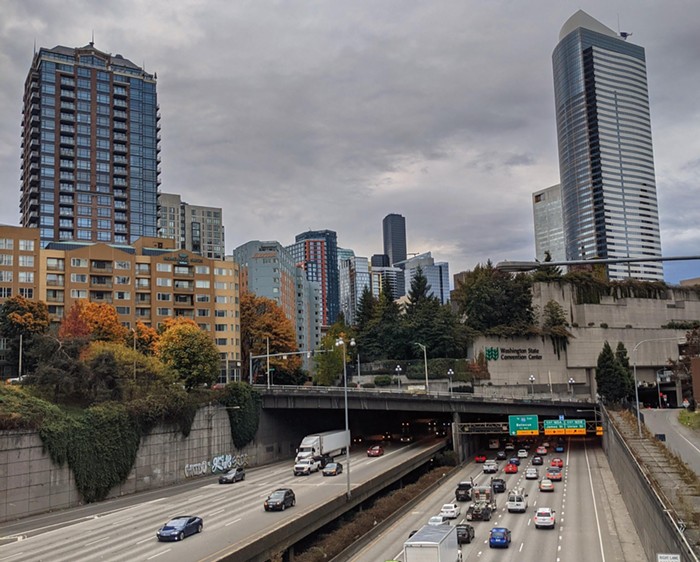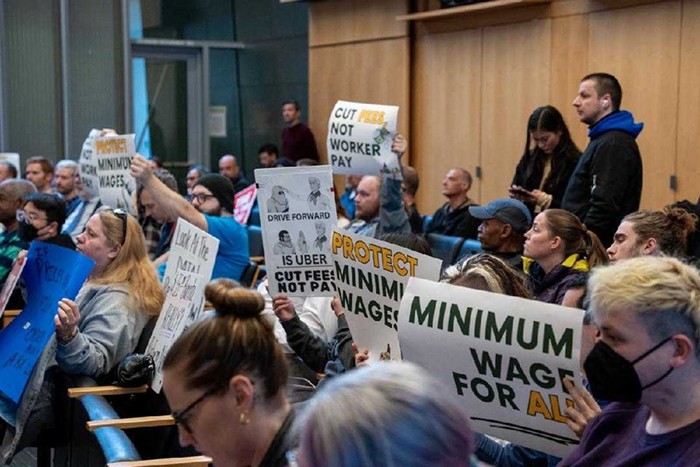According to a recent in-depth review of the City budget, council central staff attributes 79% of the City of Seattle’s increased spending between 2019 and 2024 to inflation and the rising cost of labor associated with it.
One would think that such a finding would challenge some of the new conservative council members' assumptions that the previous City Council ripped the projected $241 million hole in the 2025 budget by reckless spending and, in turn, would bolster the argument for new, progressive revenue to pay workers and expand social services. So far that’s not the case.
No one in the committee meeting gave a clear indication of whether the audit has swayed them one way or the other on taxes in last week’s meeting. But there’s plenty of time before the fall budgeting process when the council will have to balance the budget. For now, the council will meet once a month this summer to continue examining the 224-page report in what Budget Chair Dan Strauss calls his “Select Summer Budget Series.” Strauss says the council will go through the budget trends department by department to inform which of their limited levers they should pull to balance the budget—lay off staff, cut services, take from already-earmarked funds, or increase revenues.
Council Members Rob Saka, Joy Hollingsworth, Maritza Rivera, Cathy Moore, Bob Kettle, Tanya Woo, and Sara Nelson did not respond to The Stranger’s request for comment about the audit.
I’m used to it, but this is especially frustrating because the council newbies avoided questions about the budget deficit during their 2023 campaign by calling for a budget audit before they took a stance on new revenue or major cuts. The promise of an audit served as a bat signal to their supporters at the Metropolitan Chamber of Commerce and Downtown Seattle Association because it endorsed an underlying assumption that the previous council suffered from a “spending problem” and detracted from the ongoing conversation about new streams of revenue the City could use to fill its looming budget shortfall.
The council quickly realized they could not conduct as thorough an audit as they would like, but Strauss thinks that the central staff’s analysis fits the dictionary definition of an audit.
Some of the council newbs seem satisfied, others not so much. Kettle said he “loves” the report in the committee last week. But Rivera said she and Strauss will have to “agree to disagree” on the definition of an audit in a council briefing Monday.
Whether this achieves their campaign promise or not, every council member knows the report is as close to an audit as they are getting this year. They can still punt the conversation by saying they need to wait until the council finishes the Select Summer Budget Series.
That’s kind of what Strauss did on the phone with The Stranger when he avoided advocating for more revenue or specific cuts based on the high-level presentation of the audit that central staff gave last week. He said, so far, the audit provides “no obvious decisions anywhere” for solving the looming deficit because the council is still “looking under every couch cushion and under every rock.”
That’s sort of his style, annoying as it is to journalists, voters, and the girls who love the gossip. But he did praise JumpStart, a payroll tax on the biggest businesses in Seattle, for saving the budget and countless City jobs. And he ran on a loudly pro-progressive revenue platform in 2023, so he may start making more noise for taxation when the real budget negotiations begin in the fall.
But the austerity has already started. Last month Seattle Public Libraries announced 1,500 hours of service cuts between April 12 and June 2 because of staffing shortages exacerbated by the Mayor’s hiring freeze. Instead of jumping to save the public amenity by taxing the rich or corporations, Libraries, Education, and Neighborhoods Committee Chair Rivera blamed the unions and the markup on ebooks. Expect more of those kinds of arguments as the Select Summer Budget Series continues.
Unsurprisingly, the only council member to take the audit’s findings as a sign of the City’s need for new progressive taxes is Council Member Tammy Morales, the only reliable progressive in the bunch. In an email statement, Morales said, “We need to pass new progressive revenue that ensures corporations are paying their fair share. Cuts to working-class services like libraries, community centers, and food assistance are not the answer.”




















